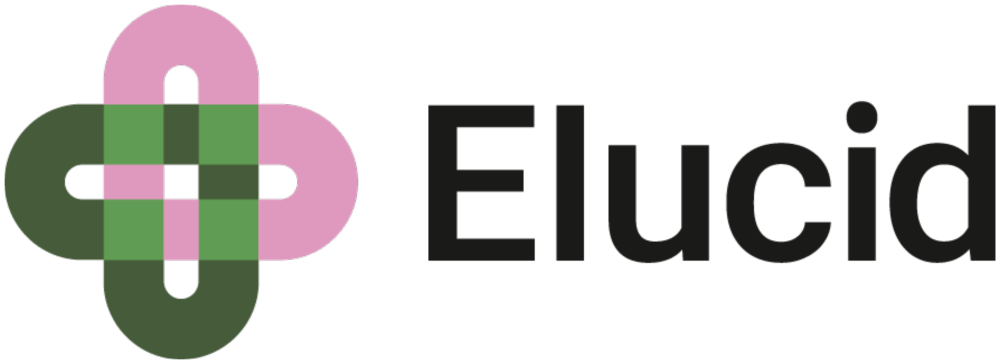Healthcare for cocoa farmers in Côte d’Ivoire: An interview with our country director Amos Kouassi

Have you ever wanted to know more about the challenges smallholder farmers face in Côte d’Ivoire, and how the healthcare system works there? Well, look no further! In our latest interview, our country directer in Côte d’Ivoire, Amos Kouassi, gets down into the details, explaining how health-system-strengthening efforts can make all the difference to farming communities.
What is your role at Elucid and what is your background?
I serve as the Country Director for Elucid Santé Côte d’Ivoire, where I lead the organization’s strategy and operations to improve healthcare access for smallholder farmers and vulnerable communities. My background combines agricultural engineering, sustainability, and data analytics, with over a decade of experience working across West Africa in cocoa, cotton, and other rural value chains. Prior to joining Elucid, I held leadership roles in agribusiness and ethical sourcing programs, helping bridge development goals with commercial supply chain operations.

Can you provide an overview of Côte d’Ivoire’s current health system, particularly focusing on the structure and reach of the Couverture Maladie Universelle (CMU)?
Côte d’Ivoire’s health system operates through a three-tiered structure: primary health centers (CSCOM, CSC, Dispensaires…), secondary facilities (general hospitals), and tertiary referral hospitals in major cities. Despite notable progress, the system remains under-resourced, with just one physician per 10,000 people and significant disparities between urban and rural areas.
The Couverture Maladie Universelle (CMU), launched in 2019, is a national health insurance scheme designed to improve financial protection and universal access to care. It provides subsidized health coverage to all registered Ivorian citizens, focusing on preventive and essential services. Enrollment is managed by the CNAM, and contributions are modest, though uptake remains a challenge, especially in rural areas where awareness, trust, and administrative barriers persist.
What have been the most significant recent developments or reforms of the CMU, and how have they impacted healthcare accessibility and financial protection for Ivorian citizens?
Since its launch in 2019, Côte d’Ivoire’s Couverture Maladie Universelle (CMU) has aimed to cover 70% of medical costs for the general population, with only 30% of the healthcare costs covered by the policyholders themselves. By mid 2024, enrollment had reached around 13 million people, which is approximately 40% of the population – now, over 18 million are biometrically registered, which is 60% of the population! To accelerate this progress, the government introduced a major reform from May 1 to August 31, 2025, granting free CMU coverage to all informal-sector workers already enrolled but unable to pay premiums. During this period, beneficiaries will only pay the 30% co-payment (“ticket modérateur”), while the state covers the rest.
While these efforts have improved accessibility, challenges remain some users report their CMU cards or vouchers being rejected by pharmacies or health centers. The government is actively working to ensure service providers fully integrate and accept the system.

Why is improving the health of farmers a critical focus area in Côte d’Ivoire? Could you explain how it connects to broader supply chain resilience, especially in key sectors like agriculture and cocoa production?
Farmers are the backbone of Côte d’Ivoire’s economy, particularly in cocoa and cotton, two of its main exports. Poor health among agricultural workers directly impacts productivity, harvest quality, and income stability. When a farmer falls ill, the entire household economy is disrupted, leading to labor shortages, delays, and lost revenue.
Improving farmer health is therefore a foundational element of supply chain resilience.
Healthy farmers are more productive, better able to adopt sustainable practices, and less vulnerable to external shocks. From a private sector perspective, it also reduces risk in sourcing operations and enhances long-term sustainability across the value chain.

What specific health challenges do rural communities and agricultural workers currently face, and how do you see the health system adapting to meet those needs?
They face a mix of infectious diseases like malaria and respiratory infections, maternal health issues, and rising cases of chronic illnesses. The challenges are made worse by geographic isolation, limited transportation, and financial constraints.
There’s been some progress through mobile clinics, community health worker programs, and partnerships with NGOs. But for real impact, we need to strengthen local health infrastructure, expand CMU coverage, and build trust in the system through community engagement.
How does Elucid help support health system strengthening efforts in Côte d’Ivoire? What value does Elucid’s approach bring to a context like Côte d’Ivoire’s?
Elucid brings a unique, field-driven approach that integrates healthcare into rural livelihoods and supply chains. We work directly with farmers, cooperatives, and public health actors to design and implement solutions that improve access to care, from mobile medical units and CMU enrollment campaigns to health literacy, digital tracking, and capacity-building.
What makes our approach valuable is the ability to connect public health goals with private sector supply chains. We show that health investments can be strategic, measurable, and beneficial for everyone involved.

Is there anything else you think is important on this topic?
Yes, health is not a standalone issue. For long-term impact, we must approach rural health through a systems lens that connects it to education, income, climate resilience, and gender equity. In Côte d’Ivoire, partnerships between public institutions, communities, and value chain actors like we’re piloting at Elucid offer a scalable path to inclusive growth. We believe the future lies in collaborative, data-informed models that place rural people at the center of healthcare delivery and development planning.



